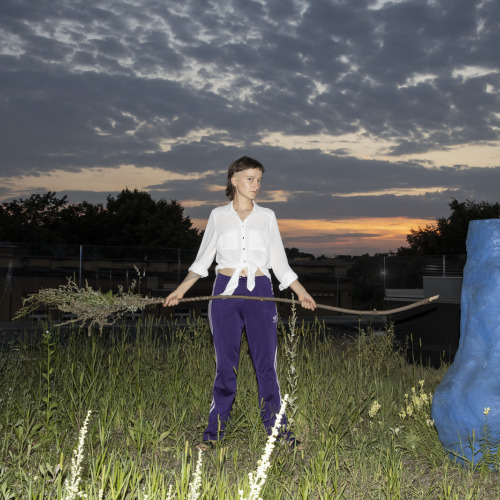
+ Behind The Firewall > Situations
Past Transitions, Welcome to the Future? presents an
interesting challenge. Indeed, one might say that women's relations with new
technologies and digital culture remain almost always a question of transitions
in face of the pursuit of possible futures encompassing bionic (smarter,
stronger, faster) means of production, with half-lives that leave one
breathless, whilst socio/geo-political infrastructures remain firmly
implemented and dysfunctional.
Softspaces / Wetware
Prepositional situations - 'in', 'at', or 'by' - indicate a final location of
action or a time of action.
The selected projects rethink the spatial dynamics and collaborative actions
that technologies may now enhance. Action as a means of articulating space with
real bodies moving through it, where bodies have historically meant relegation
to the biological, with the female body remaining a terrain of contestation in
its contingent dialogues with science and technology.
Locative media and wearable technologies erode the barriers of technological,
biological and social proximities, bringing us closer to Star Trek's 'final
frontier' of molecular disintegration and reintegration across physical,
psychological and virtual spheres, with the anxieties, flux and risk that one
may encounter in such transitions to beckoning futures.
How do electronically enhanced textures/grains of the constructed environment
accommodate the variable hybridity of vital presences and spaces which provoke
self-generating urban processes, new socio-political freedoms and dynamic
routeings enhanced by these shadow networks? Can they create their own nets via
liquid/streaming media with associative electronic projections within the
public domain?
Or is this another socially engineered context of surveillance and control, facilitated
by digitally administered and determined access/collective design - who, and
for what reasons?
Points of contact / Triggers
The designs of public space belie implicit cultural ambitions, policies, and
manipulations. Is the goal inclusive and democratic structures, where the
design of choices creates an impression of freedom? How do new cultural
geographies invested with trust (+ hope) converse with the transformative
strategies of feminisms operating today? How will this be articulated in relation
to women's security?
The artists in this exhibition represent differing strains and practices
vis-r-vis technological utopias and fantasies. Each has a particular engagement
and dialogue with the public sphere, be it within performative, social,
geo-political dynamics, or otherwise. The importance lies in the investment in
action as a means to critique, expose and counter insidious systems that
underlie our ever-increasingly flattened realities, themselves made complex by
gendered, economic, and racialised problematics.
Commenting on the consumptive aspects of planetary organ trade, Shilpa Gupta
strips away the glossy veneer of scientific progress, where 'foreign aid' and
the global flow of capital are witness to an eerie inversion of haves and
have-nots. Tamara Vukov delves into the 'art of war', where a mastery of
representation and dissimulation has become the defining feature of strategic
military manoeuvres and the high stakes of information wars. Highly advanced
electro-geometric materials, which enable decryption (seeing) and
insubstantiality, vaporise the frontiers between fiction and reality, literally
modifying landscapes in their wake. Mara Verna equally underscores the sticky
issues of borders, orchestrating on a human scale incessant negotiations of
physical and psychological alterities which may trigger emotive precarities
based in territorial ethnicities, histories, and diasporic public spheres.


